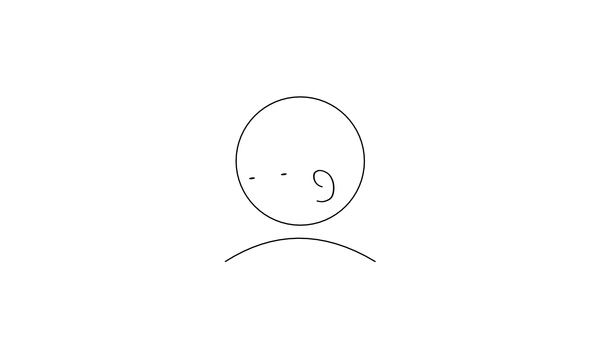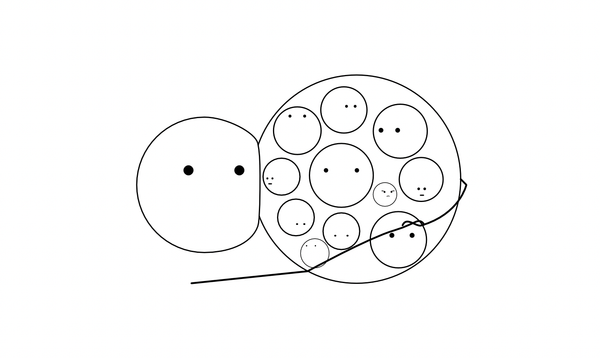Trailing information environment

With each point of interaction information goes through, it can have interpretation embedded. Also perspective, and context, and information literacy. Each person can impress their own cognitive behaviors into what information moves forward. All of these are embedded in transmission. They are an important part of how we decide to fold in the information, including how much to trust it.
Information is super useful. That's why we share it. It's hard to hyperbolize how useful it can be, since information can be the primary factor in the timing and method of our inevitable death.
Of everything in that gnarly list of what can skew information, the single most important one is information literacy. The more information literate we, as a whole, are; the less fuckuppery gets into our information systems. Those systems are huge, and effect all of us tacitly every day.
In our current environment, you can't just look for keywords and assurance. You can't decide someone is acting confident enough that they must know what they're talking about. Gaslighting abounds. You have to do the work, follow their footsteps, and check up on their trails. And yes, that should include me. I'm not here to be your new trusted source; I'm here to talk about information.
Part of the gnarliness of information is that no part of what can skew information can be effectively silo'd away and focused on. Even with information literacy, cognitive behaviors and personal goals can skew what's seen and how it's understood. With that caveat, here is what I tend to look at as a 'gauge' for whose information literacy I tend trust, more to less:
- Good journalist and scientists: love them; their questions, digging, and interest in the validity of information means they could be improving information relevance as it passes through their hands.
- Average adult: assumption is they've made sense of their world and are surviving; they have skin in the game; patterns can be sussed out over time.
- Bad journalist, science with a predefined goal (think RFK Jr. wanting to prove Tylenol causes autism): they aren't looking for truth, but for reasons to support their narrative; outside of particular areas, they might still have enough information literacy patterns to positively effect survival, but in the bigger picture they've swapped self-aggrandizement (I am right! I am a hero!) in for species survival.
- GenAI: horrible, misses every single point of the mechanics, has no skin in the game for functional information.
- Scammers/fraudsters: deliberately twisting information to effect outcome, don't care what happens to others, often dehumanizing (think labels like "NPC", historically derogatory, inflected with disgust) as a way to dismiss the pain they cause.
- Authoritarians: same as scammers, but bigger picture and intended longevity. To make the big picture still hang together, through time, they have to purge information. People are fundamentally dehumanized, and a theater of pain folded in to define and warn of what happens to non-conformity. You will be an NPC, you will accept it, and you will conform to my shifting ideas of what that means without dissent, or else.
Also note: this encapsulates why authoritarians want to curtail journalists and scientists. It's about the information.
Example: news
News tends to pass through many hands before it gets to us. Most news is published by media, and many of us get our news through social media. When it's shared by someone on social media that we trust, it's actually getting through those social media algorithms twice.

If it's a big story, there's a good chance there will be multiple people on the byline, as well as a copywriter and editor. Media leadership, from who designs the title and blurb, to the section lead, to the C-suite and publisher and media owner, are generally built up organizationally as a hierarchy. That means that they can all put their thumb on the scale to shift information, before it's ever published. They are also all in positions to help keep information literacy high; what can get missed by one person rarely makes it through an engaged, information literate, equitable team of people. The inner functioning of the organization is a differentiator.
Then, finally, it's published. It's out in the world, for anyone to read. People can go directly to the publication to read the headlines, but media has become complicated in our technology-rich world.
Many people will find articles through search engines, social media, and even generative AI. So, those functions that help to surface information have a say in what information is surfaced. With search engines, it's because we've typed in specific keywords – we have, ostensibly, some say in what we're looking for (caveat: algorithms are skewed by SEO, ad tech, and even thumbs on the scales for many search engines). With feeds, it depends on the platform and their attention algorithms. It's out of your hands, short of searching out specific organizations and people – at which point it kind of begs the question of why not just go to the publication. And generative AI? Total black box, even to the programmers. They've set parameters, but the LLM can randomly deviate as well as hallucinate.
Often, someone we know is in the middle. So their cognitive biases, interests, and mood can affect what they share, too.
Positive side
It takes just one good journalist, with transparent accountability supplied, to assure us a news article likely has more information literacy. Good journalists with integrity have fantastic information literacy that can contextualize their sources, making it even more information literate before it reaches your information ingestion.
Integrity matters. When good journalists see their expertise quashed by the publication, they'll often turn those information literacy skills towards the publication itself. See the recent Washington Post exodus. It's meaningful.

The recent uptick of good journalist setting up their own media means that, once they are found and prove themselves trustworthy over time, we can skip the intermediaries.

Negative sides
Compromised
In a compromised scenario, media leadership and owners prioritize profit over good information literacy. They often see profit as their (primary? only?) job. If they focus on organizational hierarchy and shift language and story building choices that fold good information literacy deep into the article, it's depending on readers to maintain attention to get to the important info. It surfaces soft, backpedaled information earlier that they feel won't harm the profit line.
Worst case
In the worst case scenario, media leadership/owners have worked to take the hierarchical spot specifically to skew information. Journalists are hired that are ok with diminished (even non-existent) information literacy for various reasons; why ultimately doesn't matter because the information literacy mechanics aren't there.
Algorithmic interlocutors
The same thing happens with social media, search engines, and genAI. Any system that surfaces information in algorithms that are out of user control can be skewed to shift what information can be surfaced. Any system that smudges the binary for people are very interesting to anyone who wants to manipulate information, and through that the human decisions, behaviors, and actions of people predicating their thinking on that information.




